If you are a Linux user, then chances are you’re concerned deeply about your privacy and security. As you may already know, Linux-based operative systems are less prone to malware attacks and have a huge community constantly reviewing their code to find any security flaws, which is something that can’t happen in proprietary in any proprietary OS. But does that protection remain strong after you go online from a Linux distribution?
The truth is that once you start using a browser, part of your security gets out of your hands. Common internet users don’t have complete control over their internet traffic no matter the platform they’re using. Most of the time we’re exposed to eavesdroppers and trackers who are constantly collecting data about our navigation and that should be a major concern for everyone. You’ve probably already heard this, but the best way to prevent this sort of exposure is by adopting a VPN service.
If you have not heard the term before, VPNs or Virtual Private Networks are arrangements of servers that reroute and encrypt your internet traffic so that your online activity can’t be traced by your ISP or anyone who might be spying on you. They are simply the best and simplest way you can protect your private information these days. On top of this, VPNs let you bypass all geo-restrictions imposed by various online services, allowing you to exploit the full potential of media services like YouTube and Netflix.
Best VPNs for Linux
It is true that there are a few open source VPNs available for Linux users out there, but none of them have this ‘plug & play’ installation process nor a user-friendly interface. Fortunately, there are many other proprietary options that offer support for several Linux distros. We’ve taken the liberty of checking many of them and here we present you with the best VPNs for Linux we found:
 |
 |
|
|---|---|---|
| Multi-platform Compatible | ||
| 256-AES Encryption | ||
| PRICE | $5 for 1 month with code "best10VPN" | $6.95 a month |
| Website Rating | 9.9 | 8.8 |
| 24/7 Live Chat | ||
| Residential / Dedicated IP for permanent streaming access | ||
| Has Mobile App + PC / Mac Support | ||
| Stealth VPN / Advanced Obfuscation techniques | ||
| Visit VPN Provider | Visit TorGuard | Visit PIA |
GhostVPN
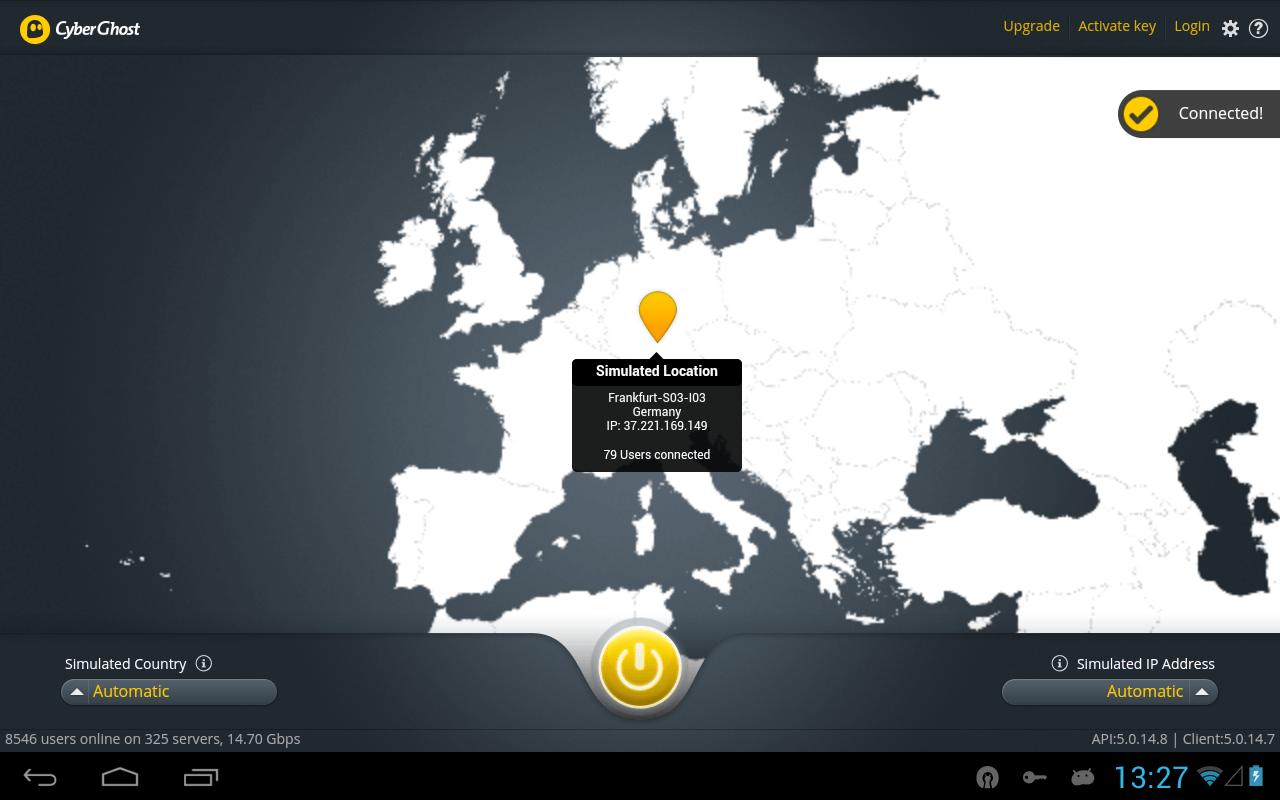
GhostVPN is a provider that popped up recently in the market. Their servers feature unlimited bandwidth and speeds and behave really well with all the security settings activated. They allow up to five simultaneous connections from a single subscription, which is convenient if you own several devices in your house and if you are not satisfied, their money-back guarantee lets you cancel the service without any compromises.
This VPN offers support for all major Linux distributions as well as Windows and Mac OS, but it doesn’t have any mobile apps just yet, although they claim to be working on them and will surely be delivering it sooner than later.
ExpressVPN
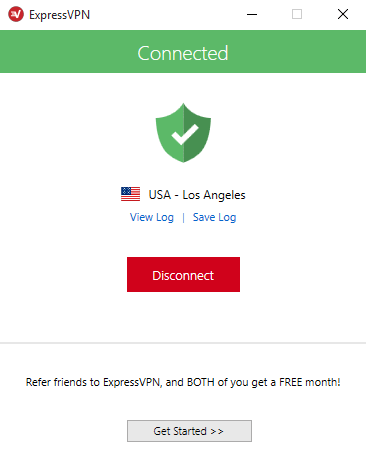
This is the favorite option of gamers and people who can’t afford to have a slow connection at any given time. ExpressVPN servers have been optimized for fast connections and, like GhostVPN, they do not have bandwidth limits. This, on top of the strongest encryption protocols and the more than 90 countries where they’ve located their servers makes them a really solid options for those looking to protect their privacy without sacrificing the stability of their connection.
Nevertheless, it has two aspects that you may want to consider before subscribing. The first one is the price of their subscription, which is a bit more expensive than the average VPN service provider. Still, the extra money is surely worth the quality of their service. The second thing you might want to know is that they do keep certain activity logs of the use of their servers, but these are only dates and bandwidth usage data that lets them monitor and improve their service, they never keep IP addresses or anything related. After all, ensuring fast connections depends on a lot of factors tied to their servers’ proper maintenance.
They offer support for almost every major Linux distro too, you’ll find it’s available for Ubuntu, Debian, Fedora, and CentOS and is surely compatible with many others that weren’t involved in our tests. They also have support for every other major platform, this includes Windows, Mac OS, Android, and iOS.
IPVanish
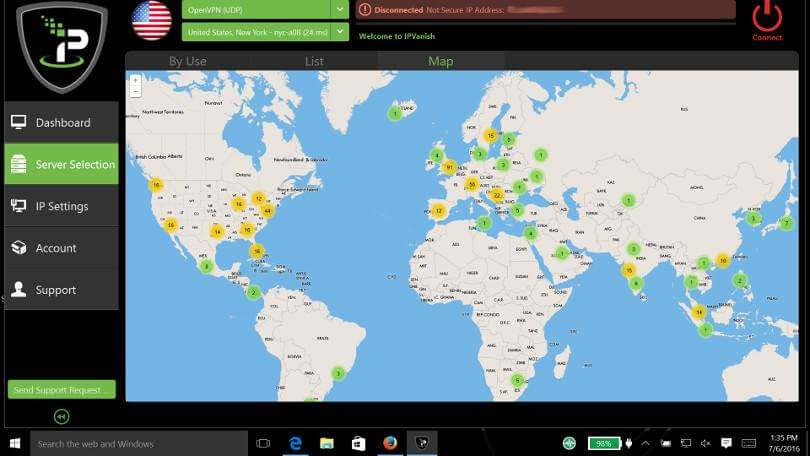
IPVanish is a favorite among geeks. They offer the whole package: no log keeping, fast speeds, solid encryption and over 850 servers in more than 60 countries. Their price is very competitive and if this doesn’t seem to be enough for you, then you can try them for a week thanks to their 7-day money-back guarantee.
They are one of the best VPNs for Linux currently available in the market and definitely a solid choice for any other platform you might be using. Even though they only claim to support vanilla Ubuntu, their client will most likely work on any of its flavors and most Debian-based distributions just as well.
Private Internet Access
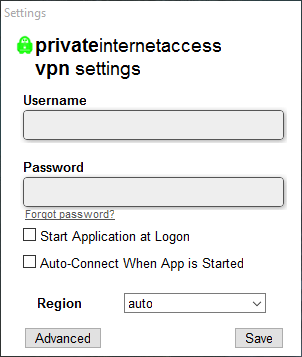
PIA VPN App
Many people like to refer to this provider as PIA, given its long name. This is what’s most likely the most competitive price of the VPN market.
Like all the other providers on this list, PIA has all the perks you’d expect from a good VPN service. That includes the safest encryption protocols, no logs of user activity and fast speeds. They do not offer many server locations, though, their list is of only 25 countries. Although this is more than enough if you don’t have the need to connect from any exotic places.
This one’s surely one of the best Linux VPNs you’ll find, but do not expect flashy imagery in their client. This is perhaps the only aspect they still have to work on, their user interface is, ironically, not that user-friendly and even somewhat confusing. You’ll find it to be compatible with Ubuntu, Debian, Fedora, and OpenSUSE. Although it is probably compatible with other Debian-based distributions too.
TorGuard
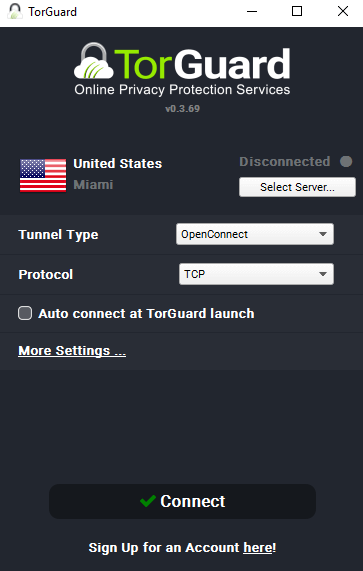
As you’re most likely expecting this far on the list, TorGuard has every good feature you could expect from a good VPN service. But apart from that, it’s the little details that make this provider stand out from the crowd. They offer anonymous emailing, proxies for all major browsers, scripting support in their client and kill switches in case there are any connection drops. On top of this, they allow P2P connections over their network and even have some servers that have been optimized for torrent sharing.
TorGuard is definitely among the best VPNs for Linux you will find because they not only put their users’ privacy on top of everything, they also offer a stable service ideal for power users and a wide variety of locations to connect to. They have more than 3000 servers distributed throughout more than 55 countries making it one of the providers with more servers on this list. Needless to say, they offer the fastest VPN and encryption protocols and keep absolutely no logs about their users.
They support several platforms, including Ubuntu with all its flavors and several Debian-based distros along with Windows, Mac OS, iOS, and Android.
More on VPNs
We can’t (and shouldn’t) stop encouraging you to use adopt VPNs in your everyday internet habits. It has never been harder to protect your privacy from institutions who don’t seem to care whether you value your information or not. Unfortunately, selling your private information and navigation habits has become a very profitable business and it is unlikely this is going to stop anytime soon.
The only ones who seem able to do anything about the protection of our privacy are ourselves. Becoming a Linux user and installing VPN software are solid steps towards the right direction, whether you decide to install one of the options we’ve offered you or just go for OpenVPN or any other open source alternatives.

